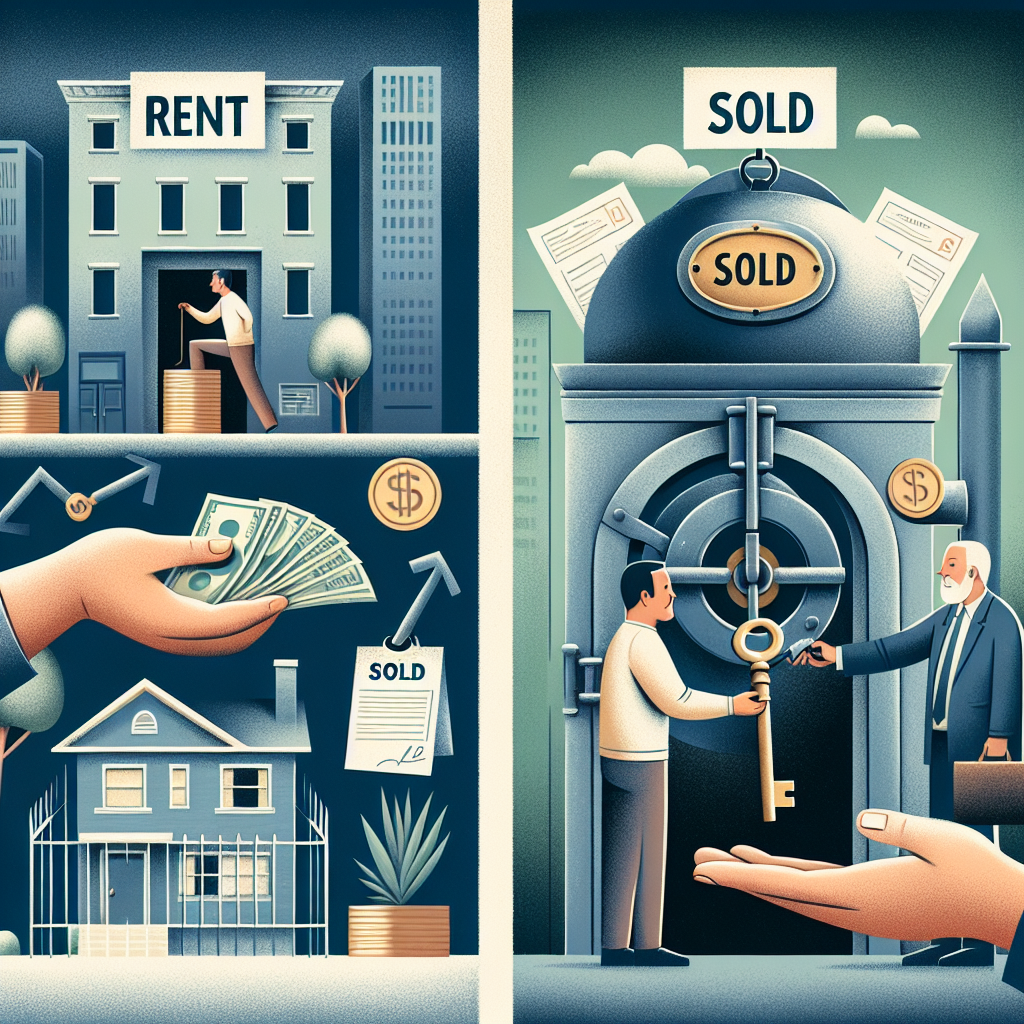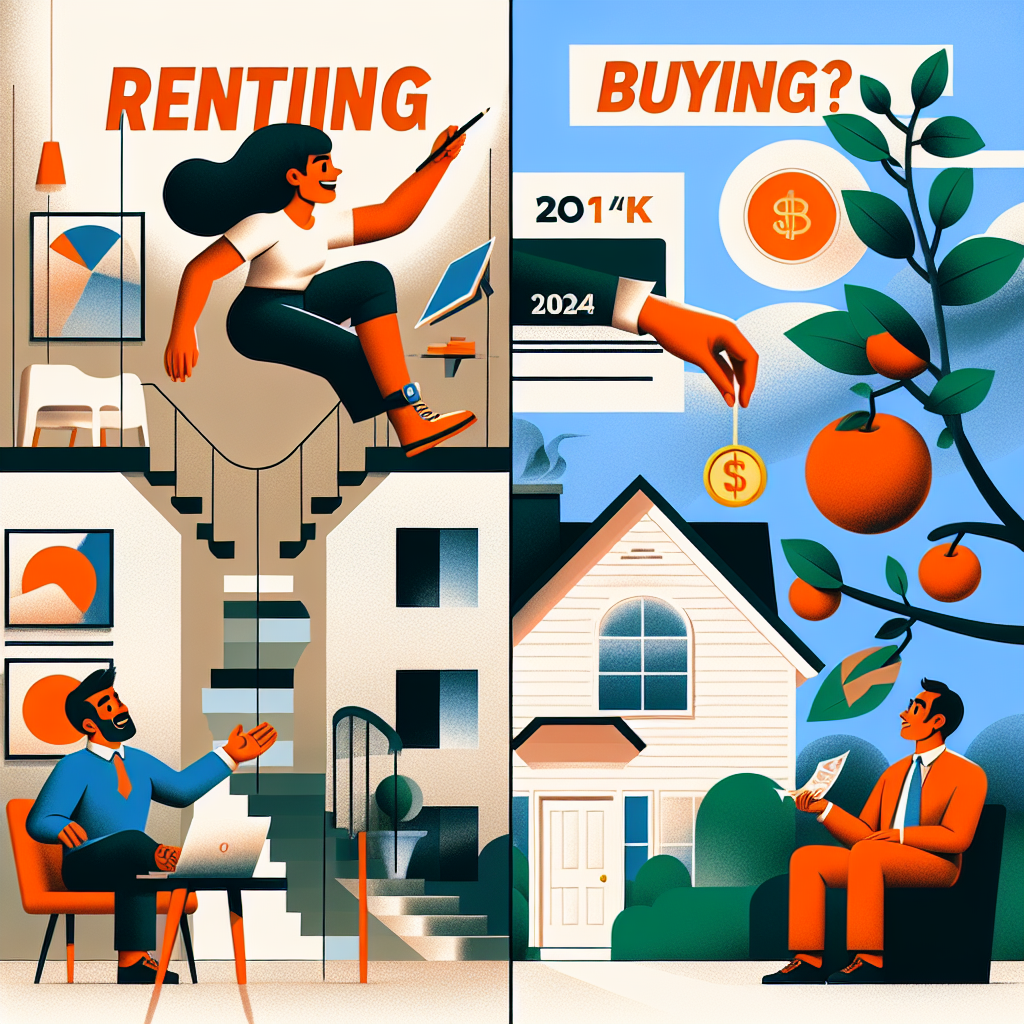-
Table of Contents
- Renting vs. Buying a Home in 2024: Is Your 401(k) Ready?
- The Current Housing Market in 2024
- Pros and Cons of Renting a Home
- Pros of Renting
- Cons of Renting
- Pros and Cons of Buying a Home
- Pros of Buying
- Cons of Buying
- Case Studies: Renting vs. Buying in 2024
- Case Study 1: Renting in an Urban Area
- Case Study 2: Buying in a Suburban Area
- Impact on Your 401(k)
- Renting and Your 401(k)
- Buying and Your 401(k)
- Strategies to Ensure Your 401(k) is Ready
- 1. Create a Budget
- 2. Prioritize Emergency Savings
- 3. Maximize Employer Contributions
- 4. Diversify Your Investments
- 5. Monitor and Adjust Contributions
- Conclusion
Renting vs. Buying a Home in 2024: Is Your 401(k) Ready?

As we approach 2024, the age-old debate of renting versus buying a home continues to be a significant financial decision for many individuals and families. With the housing market experiencing fluctuations and economic uncertainties, it’s crucial to evaluate the impact of this decision on your long-term financial health, particularly your 401(k) retirement savings. This article delves into the pros and cons of renting and buying a home in 2024, examines the current housing market trends, and provides insights on how to ensure your 401(k) is prepared for either scenario.
The Current Housing Market in 2024
Understanding the current state of the housing market is essential for making an informed decision. As of 2024, several factors are influencing the market:
- Interest Rates: Interest rates have seen moderate increases, making mortgages slightly more expensive than in previous years.
- Home Prices: Home prices have continued to rise, albeit at a slower pace compared to the previous decade.
- Rental Market: The rental market remains competitive, with rental prices increasing in urban areas but stabilizing in suburban regions.
- Economic Uncertainty: Economic factors, including inflation and job market stability, are causing potential homebuyers to be cautious.
Pros and Cons of Renting a Home
Renting a home offers several advantages and disadvantages that need to be considered:
Pros of Renting
- Flexibility: Renting provides the flexibility to move without the burden of selling a property.
- Lower Upfront Costs: Renting typically requires a security deposit and first month’s rent, which is significantly lower than a down payment on a home.
- Maintenance-Free Living: Landlords are usually responsible for maintenance and repairs, reducing unexpected expenses.
- Access to Amenities: Many rental properties offer amenities such as pools, gyms, and community centers.
Cons of Renting
- No Equity Building: Rent payments do not contribute to building equity or ownership in the property.
- Rent Increases: Rent prices can increase annually, impacting your budget.
- Limited Personalization: Renters often face restrictions on making changes or improvements to the property.
- Uncertainty: Lease terms and landlord decisions can create uncertainty about long-term housing stability.
Pros and Cons of Buying a Home
Buying a home is a significant financial commitment with its own set of advantages and disadvantages:
Pros of Buying
- Equity Building: Monthly mortgage payments contribute to building equity and ownership in the property.
- Stability: Homeownership provides long-term stability and the ability to establish roots in a community.
- Tax Benefits: Homeowners may benefit from tax deductions on mortgage interest and property taxes.
- Personalization: Homeowners have the freedom to make changes and improvements to their property.
Cons of Buying
- High Upfront Costs: Buying a home requires a significant down payment, closing costs, and other fees.
- Maintenance Responsibilities: Homeowners are responsible for all maintenance and repair costs.
- Market Risk: Property values can fluctuate, potentially leading to financial loss if the market declines.
- Less Flexibility: Selling a home can be time-consuming and costly, reducing flexibility to move.
Case Studies: Renting vs. Buying in 2024
To provide a clearer picture, let’s examine two hypothetical case studies:
Case Study 1: Renting in an Urban Area
John and Sarah, a young couple, live in a bustling city where rental prices are high. They decide to rent a two-bedroom apartment for $2,500 per month. By renting, they avoid the high upfront costs of buying a home and enjoy the flexibility to move if their job situations change. They also benefit from amenities like a gym and pool, which would be costly to maintain in a home. However, they are aware that their rent may increase annually, impacting their long-term budget.
Case Study 2: Buying in a Suburban Area
Emily and Michael, a family with two children, decide to buy a home in a suburban area where property prices are more affordable. They purchase a three-bedroom house for $400,000 with a 20% down payment. Their monthly mortgage payment, including taxes and insurance, is $2,200. By buying, they build equity and benefit from tax deductions. However, they face maintenance costs and the risk of property value fluctuations. They also have less flexibility to move quickly if needed.
Impact on Your 401(k)
Whether you choose to rent or buy, it’s essential to consider the impact on your 401(k) and overall retirement savings:
Renting and Your 401(k)
- Lower Upfront Costs: Renting allows you to allocate more funds to your 401(k) since you avoid the high upfront costs of buying a home.
- Flexibility to Save: With lower monthly expenses, you may have more flexibility to increase your 401(k) contributions.
- Uncertainty in Rent Increases: Potential rent increases can impact your ability to consistently contribute to your 401(k).
Buying and Your 401(k)
- Equity as an Investment: Building equity in your home can be considered a form of investment, complementing your 401(k).
- Tax Benefits: Tax deductions on mortgage interest and property taxes can free up funds for 401(k) contributions.
- High Upfront Costs: The significant upfront costs of buying a home may reduce the amount you can initially contribute to your 401(k).
- Maintenance Costs: Unexpected maintenance expenses can impact your ability to contribute consistently to your 401(k).
Strategies to Ensure Your 401(k) is Ready
Regardless of whether you choose to rent or buy, it’s crucial to have a strategy in place to ensure your 401(k) is prepared for the future:
1. Create a Budget
Develop a comprehensive budget that accounts for all housing-related expenses, including rent or mortgage payments, utilities, maintenance, and insurance. Ensure that your budget allows for consistent 401(k) contributions.
2. Prioritize Emergency Savings
Build an emergency fund to cover unexpected expenses, such as maintenance costs or rent increases. This fund will help you avoid dipping into your 401(k) for emergencies.
3. Maximize Employer Contributions
If your employer offers a 401(k) match, contribute enough to take full advantage of this benefit. Employer contributions can significantly boost your retirement savings.
4. Diversify Your Investments
Diversify your investment portfolio to reduce risk and increase potential returns. Consider consulting a financial advisor to develop a diversified investment strategy that aligns with your retirement goals.
5. Monitor and Adjust Contributions
Regularly review your 401(k) contributions and adjust them as needed based on changes in your financial situation. Aim to increase your contributions over time to maximize your retirement savings.
Conclusion
The decision to rent or buy a home in 2024 is a complex one that requires careful consideration of various factors, including the current housing market, personal financial situation, and long-term retirement goals. Both renting and buying have their advantages and disadvantages, and the impact on your 401(k) should not be overlooked. By creating a comprehensive budget, prioritizing emergency savings, maximizing employer contributions, diversifying investments, and regularly monitoring your contributions, you can ensure that your 401(k) is ready for the future, regardless of your housing choice. Ultimately, the best decision will depend on your unique circumstances and financial goals.








